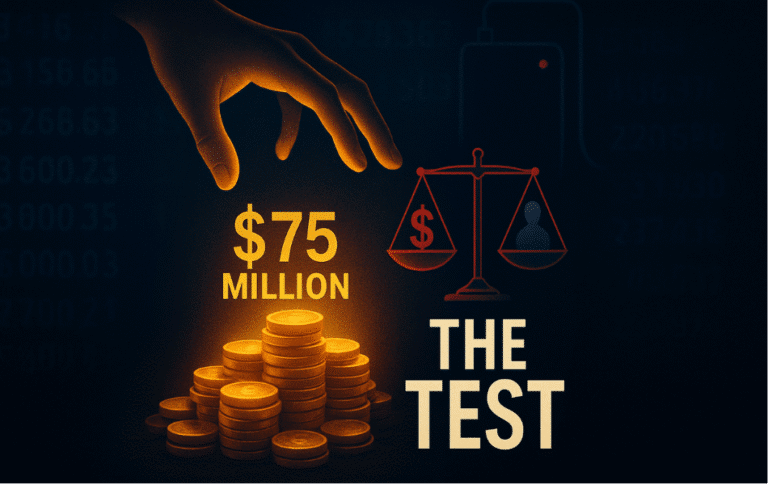Introduction: A Modern Business Parable About Temptation
In the power bank sharing industry’s turbulent history, one founder who experienced imprisonment made a striking confession: “I’m not driven by lust or greed for money, but I’m particularly hungry for fame.” This candid admission reveals a profound truth: everyone has their Achilles’ heel, and the business world excels at finding and exploiting these vulnerabilities.
The Seductive Power of Numbers: When Billions Suddenly Appear
The “Windfall” of the Deposit Era
Picture this scenario: You’ve founded a power bank sharing company where each user pays a $15 deposit. When your user base hits 5 million, you’re suddenly sitting on $75 million in your company account. This money sits there legally, and you see that bank balance every day. What psychological impact does this have on a founder?
The Hidden Truth About Withdrawal Rates
Here’s where it gets interesting. Industry data reveals:
- Merchants with monthly revenue under $8 only withdraw 2% of the time
- Those earning $8-20 monthly withdraw at 5-6%
- Only merchants earning over $50 monthly withdraw frequently
What does this mean? Vast amounts of “small money” remain on the platform indefinitely. Over time, these funds psychologically transform from “their money” to “our money” in the minds of management.
The Triple Test of Human Nature
Test One: Distinguishing “Custody” from “Ownership”
The most fundamental test is whether you can consistently remember that this money is merely in your temporary custody.
Many entrepreneurs understand this intellectually, but when expansion beckons, when competitors threaten, when investors pressure—the line begins to blur. “We’ll just use it temporarily and pay it back when we’re profitable.” Once this thought takes root, the descent begins.
Test Two: Resisting the “Scale Worship”
The internet age has created a dangerous mantra: scale is everything. Investors worship scale, media celebrates scale, and founders’ egos crave scale.
When massive funds sit available, rapid expansion seems inevitable:
- Use the money to capture market share
- Use scale to attract investment
- Use investment to expand further
This cycle appears perfect but is essentially a sophisticated Ponzi scheme. Once the funding chain breaks, the entire system collapses.
Test Three: Facing the “Sunk Cost Fallacy”
The hardest test comes after you’ve already misused the first dollar. What then?
Admitting the mistake could mean losing everything, while continuing down the wrong path offers a glimmer of hope. This gambler’s mentality—chasing losses, pushing winnings—drives many entrepreneurs step by step toward disaster.
Temptations Beyond Money
The Fame Trap
As that founder admitted, he was “particularly hungry for fame.” When an ordinary person suddenly becomes an industry leader, media darling, and startup celebrity, the ego satisfaction can be more intoxicating than money itself.
To maintain this “successful persona,” entrepreneurs make increasingly irrational decisions:
- Projecting strength despite financial strain
- Expanding despite flawed business models
- Taking massive risks to save face
The Speed Delusion
“The money came too fast, too easy, too much.” This velocity itself becomes toxic.
When monthly revenue jumps from zero to millions in months, when valuations soar from nothing to billions in a year, this exponential growth creates dangerous illusions:
- Belief in one’s invincibility
- Conviction that rules can be broken
- Faith that miracles will continue
For Whom the Bell Tolls
Survivor’s Arrogance
Interestingly, when some companies fail, survivors often develop an arrogance: “They were greedy. We’re different.”
Yet industry observations reveal a troubling pattern: more and more companies are repeating identical mistakes. This suggests the issue isn’t individual character flaws but rather that the business model itself creates extraordinary tests of human nature.
Institutional Failures
Why did almost every first-generation power bank sharing company fall into the same trap? The institutional design was fundamentally flawed:
- Absent financial oversight
- Missing industry standards
- Lacking external supervision
Under these conditions, relying on entrepreneurs’ personal integrity to resist temptation is like asking someone to fight a lion bare-handed.
Wisdom from New Models
The “Don’t Touch the Money” Philosophy
Emerging business models in the industry offer a solution: fundamentally avoid handling user funds. This seems simple but requires tremendous wisdom and discipline:
- Forgoing financial advantages from fund pools
- Accepting slower growth rates
- Acknowledging human weaknesses
The Philosophy of Risk Distribution
By distributing risk across countless small entities, with each managing only what they can handle, this “small but beautiful” model may lack the excitement of giant platforms but aligns better with human nature and proves more sustainable.
Conclusion: Entrepreneurship as a Journey of Self-Discovery
The rise and fall of the power bank sharing industry is fundamentally a story about human nature. It teaches us:
- Know Your Weaknesses: Everyone has vulnerabilities; the key is acknowledging and guarding against them
- Respect Business Laws: Fast money often masks traps; slow can be fast
- Build Institutional Safeguards: Don’t test human nature; protect it with systems
- Maintain Reverence: For money, rules, and human nature itself
Entrepreneurship isn’t just about creating wealth—it’s a journey of self-cultivation. Only by passing the tests of human nature can we build truly sustainable businesses.
As ancient wisdom suggests: “When virtue doesn’t match position, disaster follows.” When wealth grows faster than character, catastrophe isn’t far behind.






